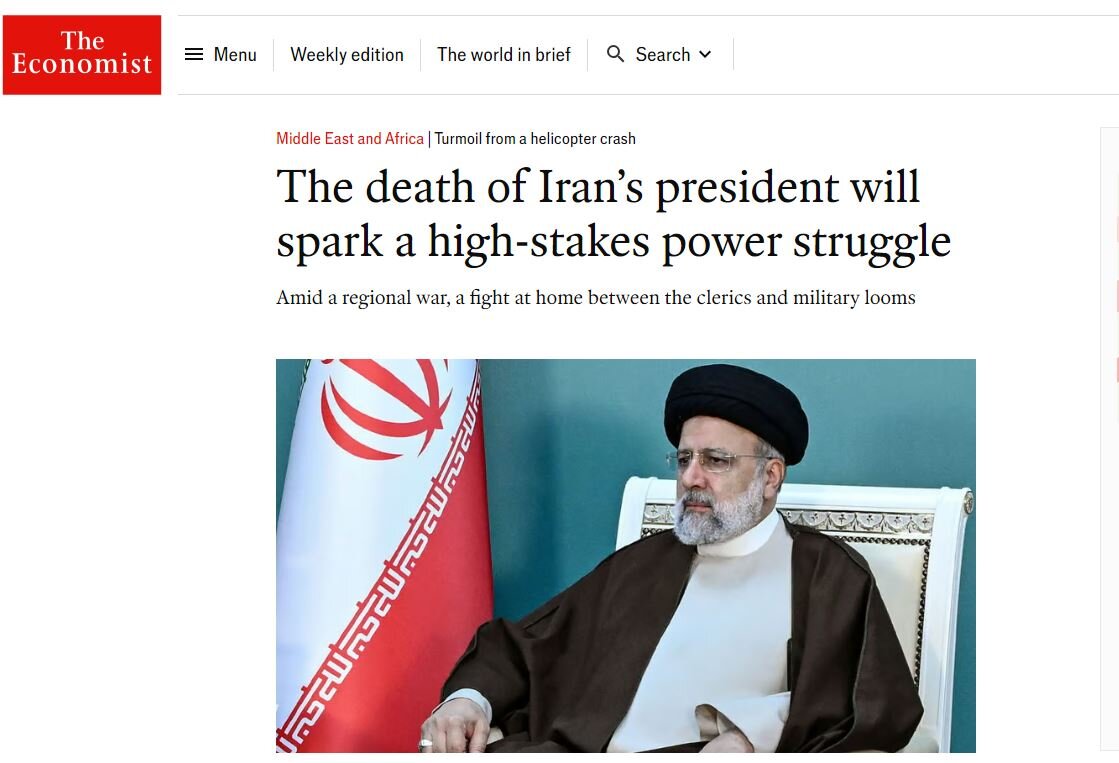Pipe Dream
Economist's unrealistic analysis

TEHRAN – In a recent article, The Economist delved into what it described as a "power struggle" following the martyrdom of Iranian President Ebrahim Raisi. However, the analysis appears more like wishful thinking than a grounded assessment.
The May 19th piece speculated on the potential fallout from President Raisi's death, suggesting a fierce contest among Iran's elite to fill the power vacuum. It predicted that this struggle could exacerbate internal tensions and result in stricter government controls.
Yet, labeling this scenario as a "power struggle" seems far-fetched for several reasons:
Firstly, the constitution of the Islamic Republic of Iran has established clear protocols for such situations, ensuring a smooth transition of power and mitigating societal concerns. In the wake of President Raisi's and Foreign Minister Hossein Amir Abdollahian's martyrdom, Vice President Mohammad Mokhber was swiftly appointed as interim president, and Deputy Foreign Minister for Political Affairs Ali Bagheri Kani became the acting foreign minister. As Hadi Tahan Nazif, spokesperson for the Constitutional Council, confirmed, all presidential responsibilities now lie with the First Vice President.
Secondly, the Iranian political spectrum unanimously expressed condolences over the tragic loss, demonstrating a united front rather than signs of discord. This collective mourning underscores a national alliance prioritizing the country's stability and unity over individual ambitions.
Thirdly, the profound sorrow following the loss of President Raisi, who was in northwestern Iran to inaugurate a joint dam project with Azerbaijani President Ilham Aliyev, reflects the nation's deep respect and admiration for their late president, often referred to as a "martyr in the service of the nation." This sentiment of national sympathy, coupled with directives from the Leader of the Islamic Revolution, Ayatollah Khamenei, has ensured that Iranian officials continue to address national issues with steadfast resolve, maintaining regular governance despite the recent tragedy.
In conclusion, the Iranian nation has historically endured and overcome significant challenges, consistently emerging unified. This unity remains crucial for the country's progress, contradicting The Economist's portrayal of an impending power struggle.
